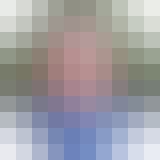The second course of the specialization EVALUATING PROBLEMS will show you how humans think and how to utilize different disciplinary approaches to tackle problems more effectively. It advances your knowledge of your own field by teaching you to look at it in new ways. EVALUATING PROBLEMS is constructed in the following way: Week I. “Thinking about Thinking” – How problem solving evolved in nature, how the mechanics of our brains work, and the psychological biases that can emerge when we think. Week II. “Philosophy, Science, and Problem Solving” – How humans have historically approached problem solving, from ancient times to the present. Week III. “Approaching Problems in the Natural Sciences” – How people in the natural sciences deconstruct problems. Week IV. “Statistics and Problem Solving” – How statistics can be used to evaluate problems and think critically. Week V. “Approaching Problems in the Humanities” – How people in the social sciences and humanities deconstruct problems. Week VI. “Evaluating the Anthropocene” – How to evaluate the problems of the Anthropocene.
The Creative Arts and Problem Solving

Loading...
Reviews
4.7 (51 ratings)
- 5 stars80.39%
- 4 stars11.76%
- 3 stars5.88%
- 1 star1.96%
MD
Nov 16, 2017
I loved this second course on the "Solving Complex Problems" roadmap.
It allows us to truly reflect on the problem we set in course 1 and to develop new areas of knowledge.
I truly enjoyed it!
DK
Jun 3, 2022
Wonderfully designed with easy understanding presentations
From the lesson
Approaching Problems in the Humanities
In this module, we will examine the similarities and differences regarding how we approach complex problems in different areas of the humanities. Given the extreme complexity of human society, a multi-faceted approach is not surprising, but we shall also examine the common threads that run through all approaches.
Taught By

A/Professor Iain Hay
Director, Professional Learning and Engagement
